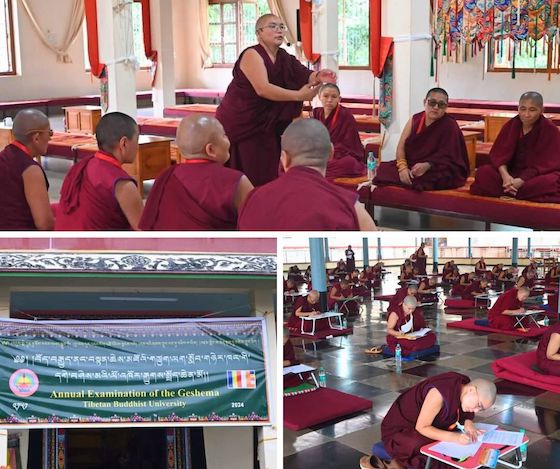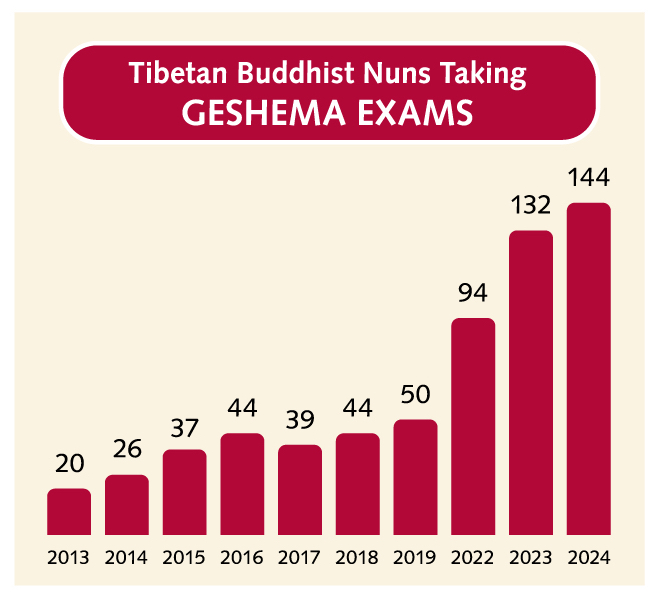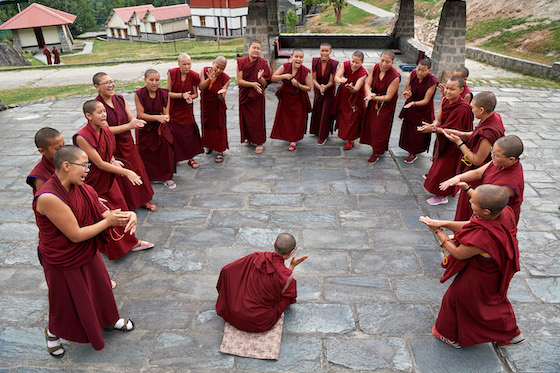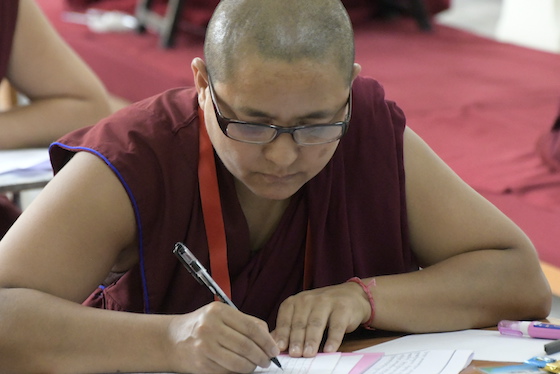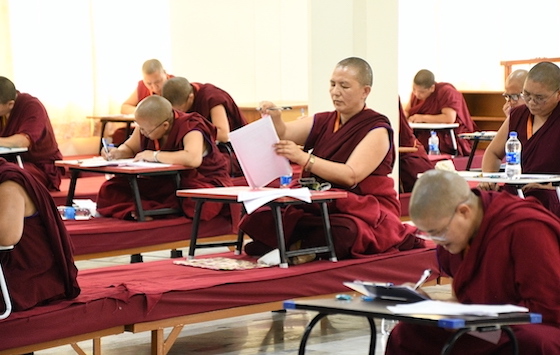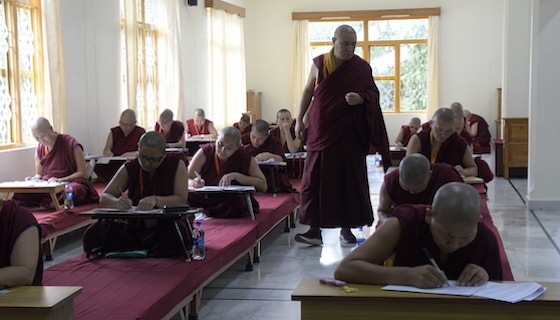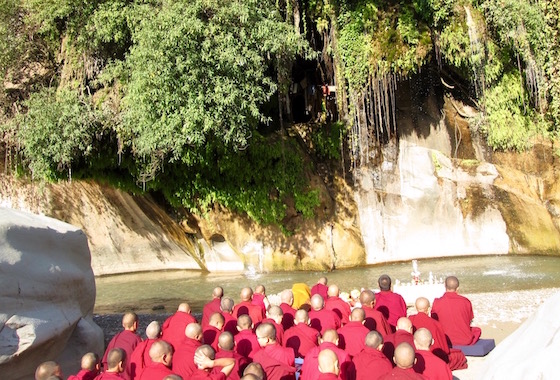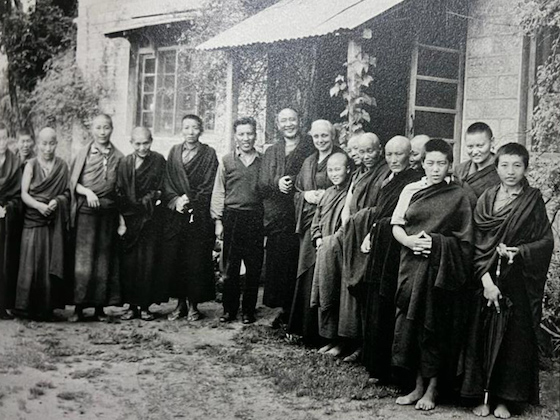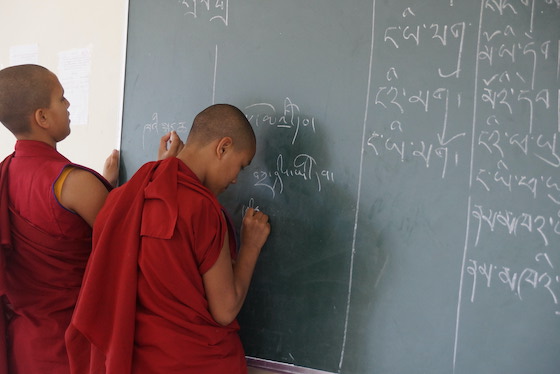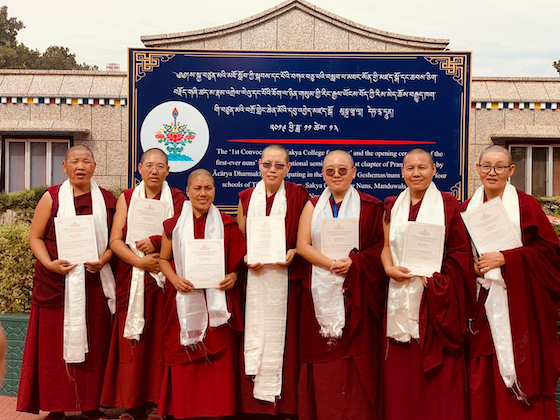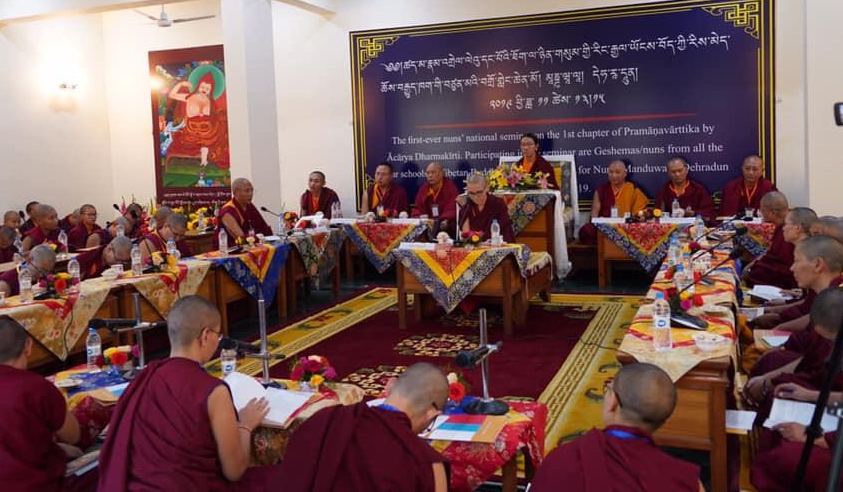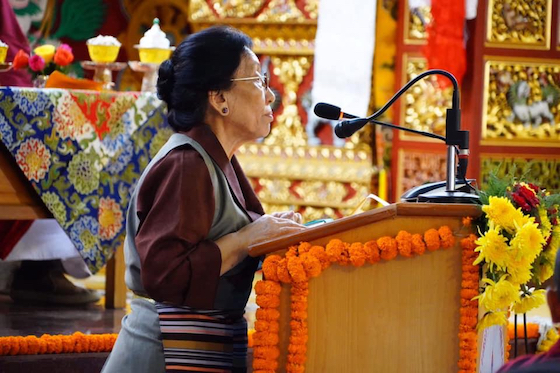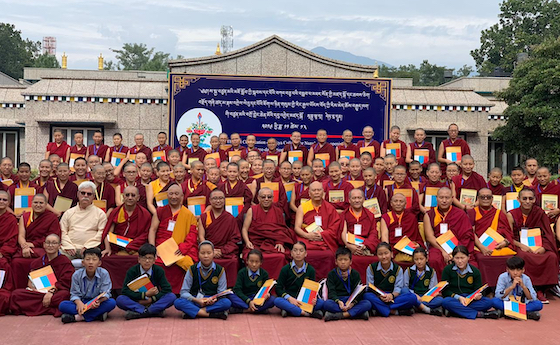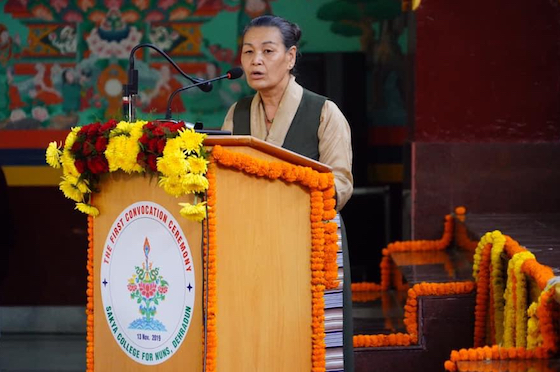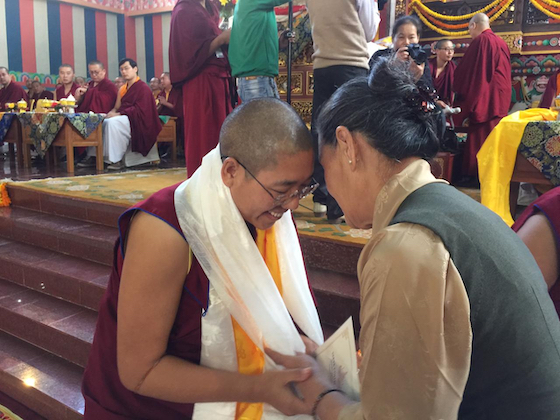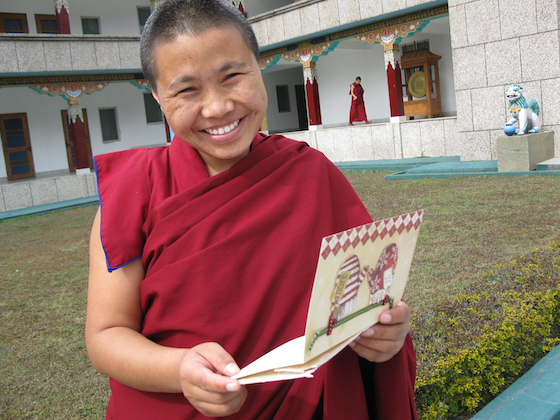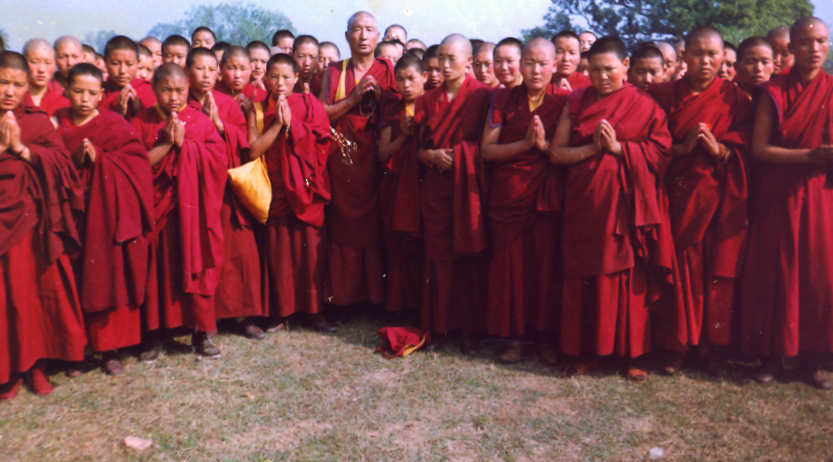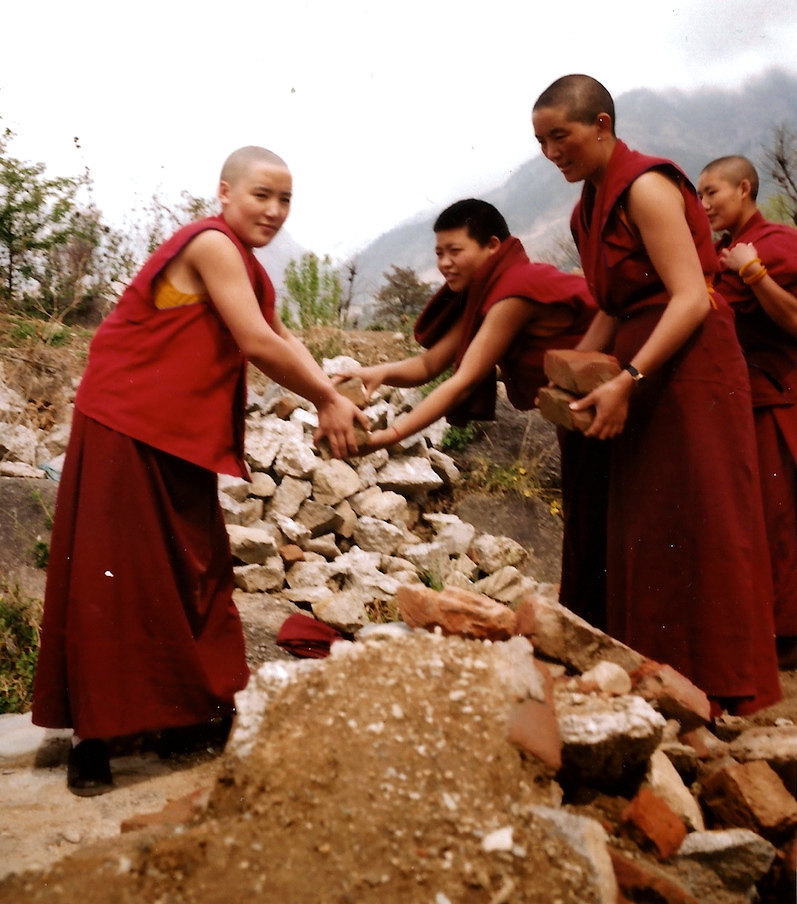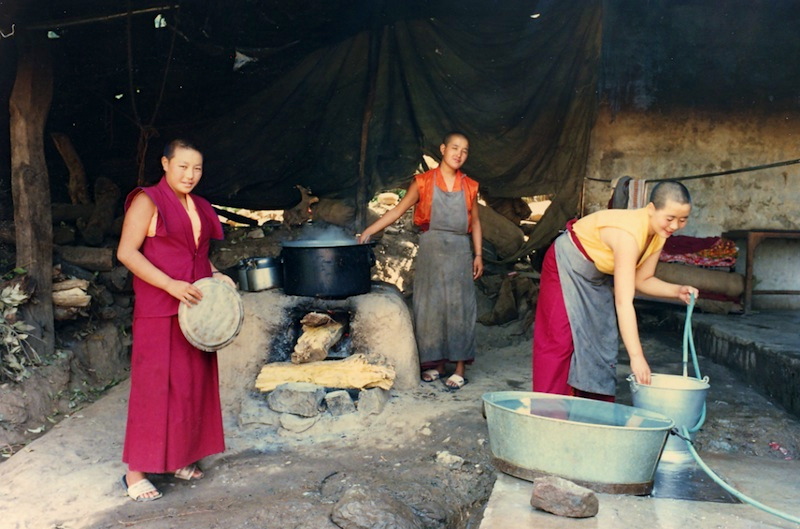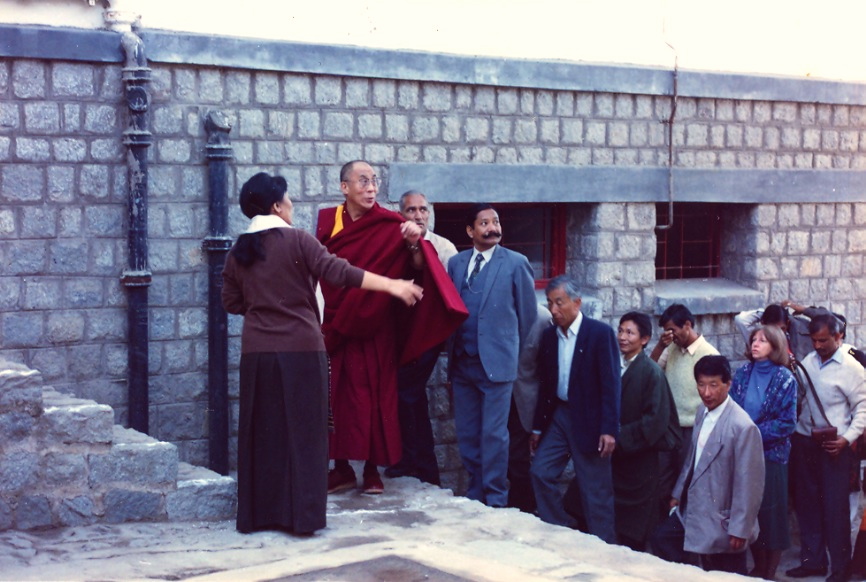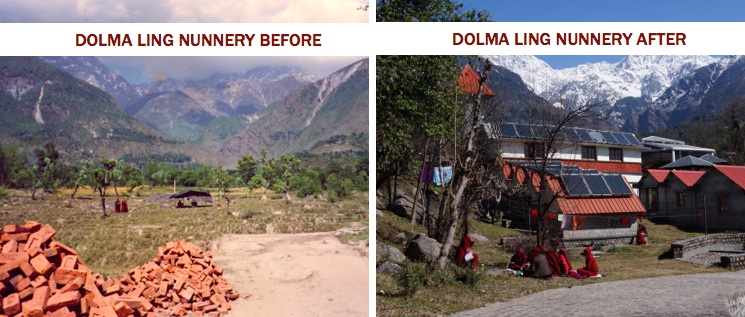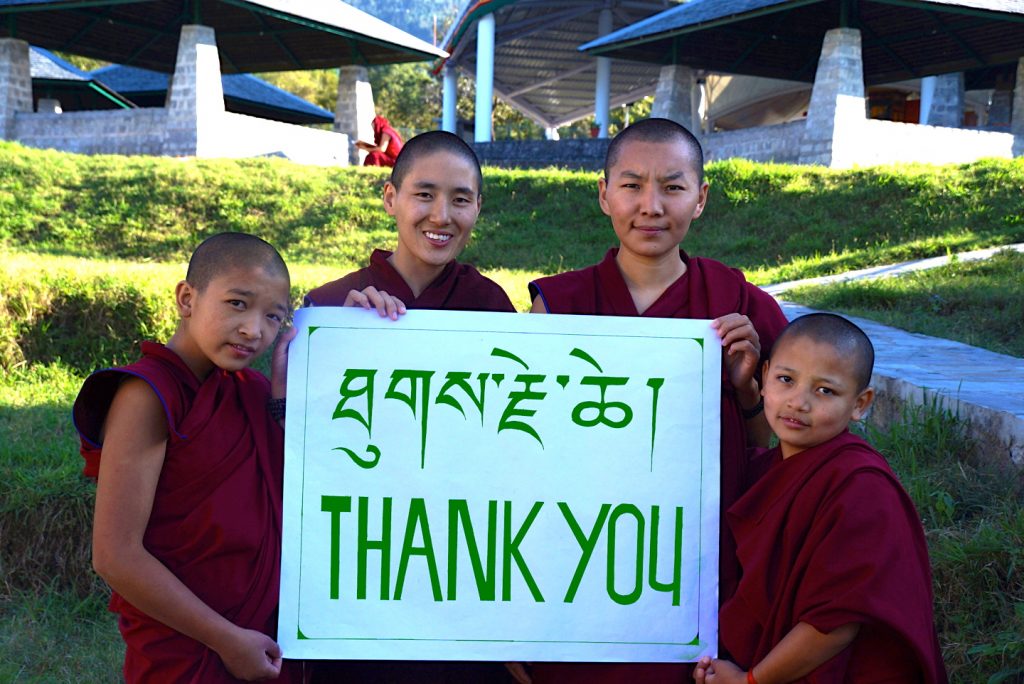A Paradigm Shift
Less than ten years ago, the first Tibetan Buddhist nuns made history when they graduated with the Geshema degree, equivalent to a PhD in Tibetan Buddhism.
Until 2012, the highest degree was only open to men. The 2016 Geshema graduation ceremony, presided over by His Holiness the Dalai Lama, marked a new chapter in the education of ordained Buddhist women.
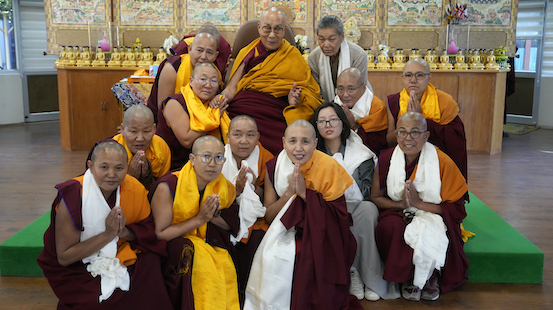
This winter, His Holiness the Dalai Lama blessed the Geshema nuns who completed a one-year program in Tantric Buddhism. The laywomen are Nangsa Choedon, Director (top) and Tenzin Palkyi, Project Coordinator at the Tibetan Nuns Project in India.
Their success fulfilled a longstanding wish of His Holiness the Dalai Lama, the patron of the Tibetan Nuns Project. It was even more remarkable because some of the nuns were illiterate when they escaped from Tibet.
Since those first 20 nuns stepped across the stage to make history, many nuns have followed in their footsteps. Last year, a record 144 nuns sat various levels of the four-year Geshemas exams and 13 graduated as Geshemas, bringing the total number of Geshemas to 73.
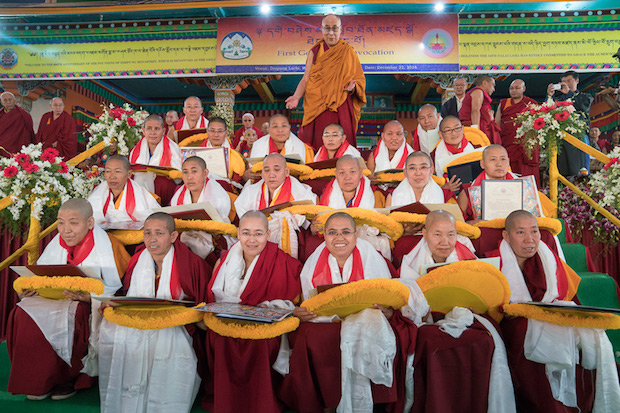
His Holiness the Dalai Lama with the 20 Geshema graduates in 2016. Photo courtesy of OHHDL.
This change in the status and education of Tibetan Buddhist nuns would not have been possible without the steadfast generosity of our supporters. Thank you! The Geshemas are now assuming leadership and teaching roles previously closed to women.
Fifth Set of Graduates from the Tantric Studies Program
Last month, on February 19th, 2025, nine Geshemas graduated from the year-long Tantric Studies program at Gyuto Tantric University near Dolma Ling Nunnery and Institute.
Here’s a charming video of the graduation made by the Dolma Ling Media Nuns. Can’t see the video? Click here.
The Tibetan Nuns Project launched the Tantric Buddhism study program in 2017 thanks to the support of generous donors. Although there have been accomplished female practitioners in Tibet’s history, women have never before been given such an opportunity to formally study Tantric Buddhism.
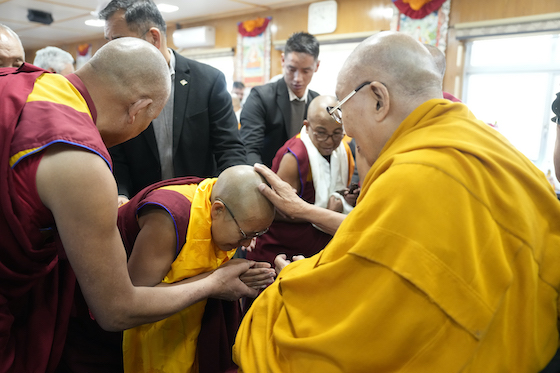
A Geshema receives blessings from His Holiness the Dalai Lama in December 2024 after completing a one-year program in Tantric Buddhism. These women pioneers have accomplished a level of scholarship and Buddhist training that, until recently, was only open to men.
Another Step Towards Equality
The Tibetan Nuns Project has played a pivotal role in advocating for equality of access to education and higher degrees. The Tantric Buddhism program for nuns helps bring them more in line with monks for learning opportunities and advancement along the spiritual path.
Once monks attain their Geshe degree, if they want to be fully qualified masters capable of teaching their complete tradition, they must add to their knowledge an understanding of the principles of Tantra and the main Tantric practices of their tradition. For these studies, monks usually join one of the two Tantric Colleges where they have access to highly qualified teachers, texts, and a supportive community of practitioners. Until recently, these options weren’t available to nuns.
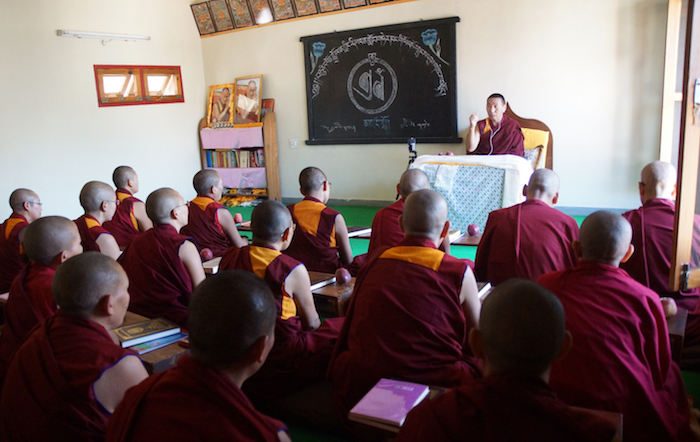
For the first time in the history of Tibet, Buddhist nuns have the opportunity to formally study Tantric Buddhism. The program started in 2017 and now the fifth set of nuns has graduated. Photo courtesy of the Nuns Media Team.
The Tantric studies program for nuns began in 2017 after a committee of representatives from six nunneries approached His Holiness the Dalai Lama for advice about the curriculum and how to proceed.
His Holiness the Dalai Lama kindly gave detailed instructions about the treatises to be used and recommended that the Geshema nuns study as a group at Dolma Ling Nunnery. The first Geshemas graduated in 2019.
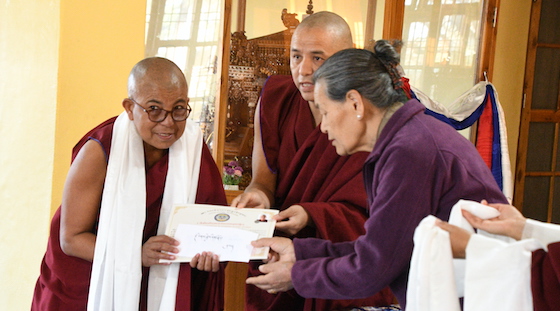
Nangsa Chodon, Director of the Tibetan Nuns Project in India, presents the degree certificate at the graduation ceremony on February 19, 2025, for the fifth group of Geshemas who completed their studies in Tantric Buddhism.
The Tantric Studies program will continue as more nuns obtain the Geshema degree. In January 2025, the Tibetan Nuns Project completed the funding for 16 rooms at Dolma Ling where the Geshemas from India and Nepal can stay while they take the program. This is an exciting development of a safe space for the nuns to stay and focus on their studies.
Building a Solid Future
The Tantric studies program for nuns is funded through our Geshema Endowment which also supports the annual Geshema exams and the Geshema graduation each November. We are extremely grateful to the 159 donors to the Geshema Endowment, including the Pema Chodron Foundation, the Pierre and Pamela Omidyar Fund of the Silicon Valley Community Foundation, the Frederick Family Foundation, and the Donaldson Charitable Trust.
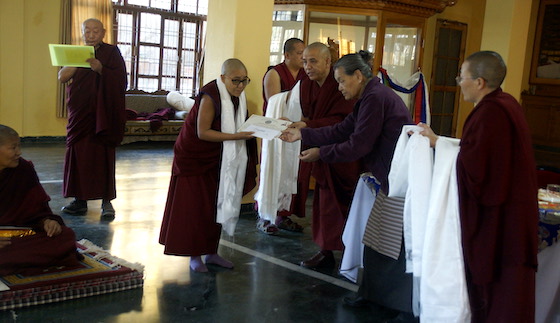
On February 19, 2025, the fifth cohort of Geshemas graduated from their one-year program in Tantric Buddhism. Nine nuns graduated from this special program launched by the Tibetan Nuns Project in 2017.
The Tibetan Nuns Project wants to put more of its core programs on solid ground through our Long-Term Stability Fund and through encouraging supporters to leave a legacy of compassion to help the nuns.
As one supporter said, “A donation to this cause benefits beyond helping just the nuns… it benefits the Tibetan culture, it benefits refugees from Tibet, it benefits education for women, it benefits the Buddhist religion and community and all of this spreads like a ripple of compassion for others beyond that community. This is not charity; it is an investment in humanity.”




